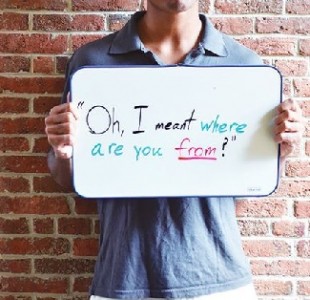
Well here’s something you don’t see everyday – a college student defending microaggressions. And he actually does a pretty decent job of it. His main point is that not asking people about themselves – their heritage, their background, etc. – actually hinders the process of breaking down barriers and learning about one another.
Ian Grice of North Carolina State University writes in the The Technician campus newspaper in part that:
… asking questions to try to understand someone’s culture is almost never a bad thing and usually is not an expression of racist attitudes. The term racial micro-aggressions implies, falsely I feel, that the conversation is racially motivated when, more often than not, they are more about subcultures.
Though it exists as a social construct, race is not a biological fact. Scientists have known for years that there is no such thing as race. Alan R. Templeton, Ph.D., professor of biology in arts and sciences at Washington University, published a dissertation, asserting there is more diversity within a single “race” than among “races.”
My high school in Germany was host to a lot of racial and cultural diversity, much more than the schools in the U.S. that I’ve attended, and probably far more diverse than NC State. In that environment, as it should be everywhere, ethnicity was not a taboo subject. Students were socially encouraged to ask questions that are considered racial micro-aggressions and the diversity that arose was a culturally enriching fact of life. Such is life in the international world that we live in, where race can be a non-issue. …
Questions and behaviors that can be labeled micro-aggressions should be expressed. Assuming someone grew up and didn’t experience a wide array of people, how else would that person learn about other cultures? Asking people about themselves gives us a better chance to learn about culture and identity.
Since coming to NC State, nearly no one has asked my ethnicity, which has been a new experience for me. All my life, people have asked me about it, whereas here people either don’t seem to care or they are too overly sensitive to ask. I understand now that it is a taboo; I knew when I crossed that invisible line of asking someone’s ethnicity. A question as simple as “What’s your ethnicity?” can be a great icebreaker, and questions like that give you a reason to learn your own family’s history.
Like The College Fix on Facebook / Follow us on Twitter
Like The College Fix on Facebook / Follow us on Twitter







Please join the conversation about our stories on Facebook, Twitter, Instagram, Reddit, MeWe, Rumble, Gab, Minds and Gettr.